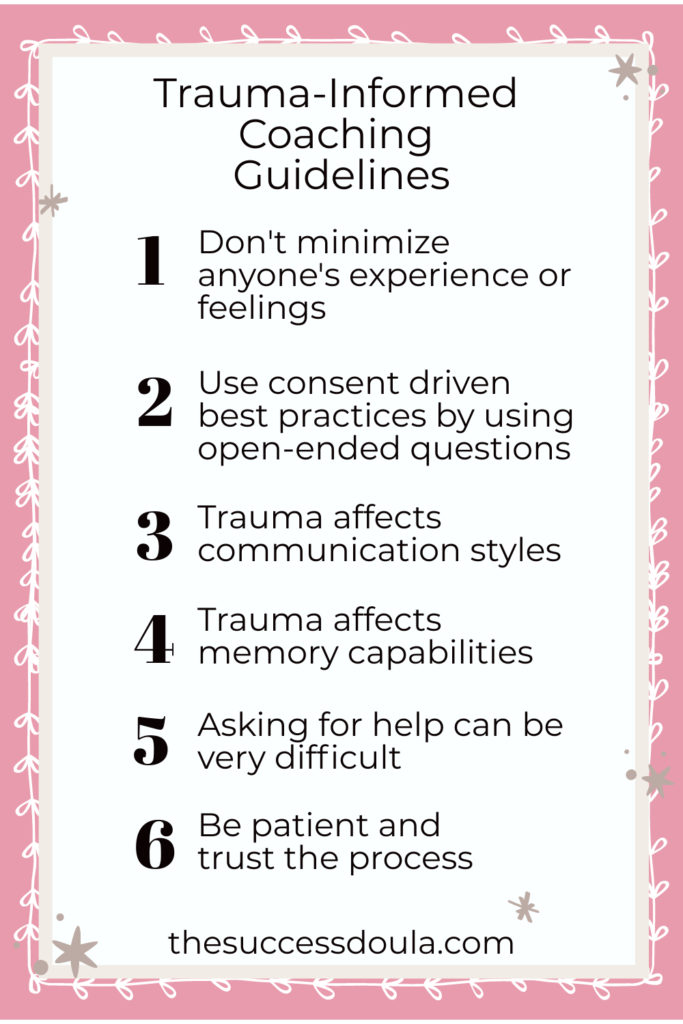Trauma-Informed Coaching Guidelines
We all know that coaching is a powerful and transformative process. The relationships we build with our clients can help them overcome barriers they may have faced in the past, but it's important for coaches to understand how trauma-informed care can be used as an effective tool in helping people unlock their potential. In this blog post, I will explain the basic guidelines of trauma-informed coaching.
- Don't minimize anyone's experiences or downplay how it feels to them. All trauma is real and it is as individual as each person's experiences are. As a coach, your job is to empower your clients not belittle them.
- Use consent driven best practices by using open-ended questions to avoid pressuring trauma survivors into giving answers they aren't ready for. Instead ask if now is a good time to explore a topic.
- Remember that trauma can affect communication styles. Sometimes people express anger when they're really scared or sometimes they don't express anger when they're really mad.
- Be aware that trauma survivors often struggle with memory issues. Someone's ability to remember and learn is related to how their nervous systems are regulated. If your clients are asking the same questions over and over it may not be that you are doing something wrong, only that they are not regulated enough to remember the first time (of course, you may need to review your content, too).
- Remember that asking for help can be very difficult for traumatized people.
- Be patient when working with traumatized clients. Trust the process and trust that your clients want to make improvements in their lives
Approaching every client with trauma informed care is essential in order to create a safe and supportive environment for them to make changes in their lives. By using these guidelines, coaches can help their clients feel understood and respected, which is necessary for growth.
Interested in learning more trauma-informed practices? Check out my Trauma-Informed Certification program






